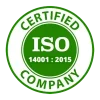Table of Contents
ToggleSwitzerland, known for its breathtaking landscapes, world-class cities, and high quality of life, is a popular destination for people relocating from around the globe. Whether you’re moving for a job opportunity, to enjoy the peaceful lifestyle, or to be closer to family, moving in Switzerland presents both exciting opportunities and unique challenges. From navigating complex visa requirements to understanding the local customs, every step of the relocation process requires careful planning. With the right guidance, though, transitioning to your new Swiss life can be a smooth and rewarding experience.
When it comes to moving in Switzerland, partnering with a reliable and experienced relocation service provider can make all the difference. ISS Relocations has been helping individuals, families, and businesses move across borders for years, offering a full suite of services that ensure a hassle-free move. In this comprehensive guide, we’ll cover everything you need to know about moving to Switzerland, along with how ISS Relocations can simplify your journey every step of the way.
How ISS Relocations Simplifies Moving in Switzerland
Moving in Switzerland can be a complex and overwhelming process, especially for those unfamiliar with the local regulations and procedures. This is where ISS Relocations excels. They offer a comprehensive range of moving solutions, tailored to your specific needs, ensuring that your move is as seamless as possible.
Comprehensive Moving Solutions
ISS Relocations provides end-to-end services that cover every aspect of your move, from packing and transporting your belongings to setting up storage solutions if needed. Their professional team understands that each move is unique, and they take pride in creating customized moving plans that fit your timeline and budget. Whether you are moving in Switzerland for work, family, or retirement, ISS Relocations ensures that all logistical aspects are handled efficiently.
Expertise in Swiss Regulations and Customs
One of the most challenging parts of moving in Switzerland is navigating the strict customs regulations. ISS Relocations offers invaluable expertise in handling customs procedures, ensuring that your personal belongings enter the country without delay. From understanding the paperwork required to managing import duties and taxes, their team ensures that your move complies with all Swiss laws, saving you from potential complications.
Tailored Relocation Packages for Families, Individuals, and Corporates
ISS Relocations understands that moving in Switzerland is not a one-size-fits-all process. Whether you are relocating alone, with your family, or as part of a corporate transfer, their services are designed to meet your specific requirements. From school searches and home-finding services for families to streamlined corporate packages, ISS offers personalized relocation assistance that goes beyond just transportation. They focus on making your transition into Swiss life as smooth as possible, helping with post-move essentials like settling into your new home and understanding the local environment.
Moving In Switzerland?
Begin Your Stress-Free Relocation Journey Today – Request A Quote Now!
Preparing for Your Move to Switzerland: Key Considerations
Planning ahead is essential for a successful relocation to Switzerland. From obtaining the right visa to managing customs requirements, understanding the steps involved in moving in Switzerland will save you time, stress, and money. In this section, we will walk you through the most important factors to consider before making the big move.
Understanding Switzerland’s Visa and Residence Permit Process
The first and most important step in moving in Switzerland is obtaining the appropriate visa or residence permit. Switzerland offers several visa categories depending on your purpose of relocation, whether it’s for employment, family reunification, or retirement. It’s crucial to start your application early, as the process can be time-consuming, particularly if you need a work visa.
Once you arrive in Switzerland, you will need to register with the local authorities and apply for a residence permit. This permit is necessary for long-term stays and varies depending on your nationality and employment status. Having a clear understanding of the Swiss immigration system will help ensure a smooth transition and avoid any delays in starting your new life.
Legal Requirements for Moving in Switzerland
Swiss customs regulations are another critical aspect to consider. If you’re bringing personal belongings, certain items may be subject to customs duties, while others could be restricted or prohibited. It’s essential to familiarize yourself with these rules before moving to avoid complications upon arrival. For example, bringing in large quantities of alcohol, tobacco, or certain electronics may trigger additional duties or taxes.
The good news is that ISS Relocations offers expert guidance in navigating these legal hurdles. They provide detailed advice on what can and cannot be brought into Switzerland, ensuring that your move complies with Swiss regulations. By working with an experienced relocation company, you’ll avoid common pitfalls and ensure that your move in Switzerland proceeds without unnecessary delays.
Language and Cultural Differences
Switzerland is unique in having four official languages: German, French, Italian, and Romansh. Depending on which region you are moving to, you may encounter different linguistic and cultural practices. Adapting to these language differences is an important part of your move to Switzerland, especially if you plan to live in a non-English-speaking region.
Taking time to learn the basics of the local language will not only help with daily interactions but also show respect for Swiss culture. Additionally, familiarizing yourself with local customs, social norms, and etiquette will help you integrate smoothly into your new community. With proper preparation, moving in Switzerland becomes much more enjoyable and less overwhelming.
Cost of Living in Switzerland: What You Need to Know
Switzerland consistently ranks as one of the most expensive countries to live in, with high costs across housing, utilities, and everyday services. However, the country’s high quality of life and competitive salaries make the cost worth it for many expats. Understanding the financial aspects of moving in Switzerland will help you budget effectively and avoid surprises.
Housing and Rent Costs
Rent is typically one of the largest expenses when moving in Switzerland. Housing prices can vary significantly depending on the city or canton you choose to live in. For example, renting an apartment in Zurich or Geneva can cost anywhere from CHF 2,000 to CHF 3,500 per month for a one-bedroom apartment. Smaller towns and rural areas tend to have lower rents, but you may have to compromise on proximity to major amenities.
It’s important to begin your housing search early and be prepared for competition, as housing markets in popular cities can be highly competitive. ISS Relocations can assist in finding the perfect home for you, whether it’s temporary accommodation while you settle in or a long-term rental. Their expertise in the Swiss housing market ensures that you’ll find a home that fits your needs and budget.
Utilities and Services
In addition to rent, you’ll need to account for the cost of utilities and services when moving in Switzerland. Monthly utility costs, which include electricity, water, heating, and waste disposal, can range from CHF 200 to CHF 400, depending on your living arrangements. Internet and phone services typically add another CHF 50 to CHF 100 per month. Having an accurate estimate of these expenses will help you create a realistic budget.
ISS Relocations not only helps with your move but also supports you in setting up essential services like utilities and internet. Their local expertise takes the hassle out of this process, allowing you to settle into your new home with minimal effort.
Health Insurance and Mandatory Coverage
Health insurance is mandatory for all residents in Switzerland, and it’s an expense that must be factored into your budget. Costs vary based on the plan you choose, but basic coverage can range from CHF 300 to CHF 500 per month per person. Switzerland’s healthcare system is highly regarded for its quality, but it’s essential to choose the right insurance provider to avoid overpaying.
When moving in Switzerland, ISS Relocations offers guidance on selecting the most suitable health insurance plan for your needs. They can connect you with reputable providers and help you navigate the application process, ensuring that you meet Swiss legal requirements without overspending on coverage.
Navigating Life in Switzerland After Moving
Once you’ve successfully completed the logistics of moving in Switzerland, it’s time to settle into daily life. From navigating public transportation to setting up financial accounts, adapting to a new country requires an understanding of its infrastructure and services. This section will provide key insights on how to manage everyday tasks and make the most of your time in Switzerland.
Transportation and Mobility in Switzerland
Switzerland boasts one of the most efficient public transportation systems in the world. With a well-connected network of trains, buses, and trams, commuting within cities or traveling between regions is straightforward. Whether you’re living in Zurich, Geneva, or a more rural area, you’ll find public transport to be reliable, clean, and punctual.
For those moving in Switzerland and relying on public transportation, purchasing a Swiss Travel Pass can be a cost-effective way to access the entire system. Additionally, cycling is very popular in many cities, and Switzerland has an extensive network of bike paths for safe commuting. Understanding these transportation options will help you adapt quickly and navigate your new surroundings with ease.
Banking and Finances
Opening a Swiss bank account is essential for managing your finances after moving in Switzerland. Switzerland is known for its secure banking system, and expats will find that having a local account makes managing day-to-day transactions, rent payments, and utilities much easier. The process for opening a bank account is straightforward, but you’ll need identification, proof of residence, and a valid residence permit.
Most banks offer online banking services in English, which can be helpful for expats. ISS Relocations can assist with setting up your financial accounts, providing advice on the best banking options based on your needs and helping you complete the necessary paperwork.
Education and Schooling Options
For families moving in Switzerland, finding the right school for your children is a top priority. Switzerland offers a range of schooling options, including public schools, private schools, and international schools. Public schools are free and highly regarded, though instruction is often in one of the official Swiss languages. If language is a concern, international schools offer education in English and other languages, making the transition easier for expat children.
ISS Relocations can help you find the best educational environment for your child by providing insights into local schools and assisting with the enrollment process. Their local knowledge ensures that you’ll have access to the best schooling options available in your area.
Common Challenges Expats Face When Moving to Switzerland
Moving in Switzerland, while exciting, also comes with a few challenges. From high living costs to the intricacies of Swiss bureaucracy, expats may need time to fully adjust to their new environment. However, understanding these common challenges ahead of time will help you prepare and adapt more easily.
Adapting to Swiss Culture and Etiquette
One of the key cultural adjustments when moving in Switzerland is learning to navigate local etiquette. The Swiss are known for their punctuality, formality, and respect for privacy. Greeting people with a handshake, being on time for appointments, and respecting quiet hours are all important aspects of daily life in Switzerland.
While it may take some time to get used to these customs, embracing Swiss culture will help you integrate into your new community more smoothly. Additionally, learning a few key phrases in the local language will go a long way in establishing rapport with Swiss neighbors and colleagues.
High Cost of Living
Switzerland is one of the most expensive countries to live in, and this can be a major adjustment for expats moving in Switzerland from more affordable regions. From rent and groceries to dining out and entertainment, costs are generally higher across the board. However, the high quality of life, safety, and robust infrastructure balance out these expenses.
To manage the cost of living, it’s important to budget effectively and be mindful of your spending, particularly in major cities like Zurich and Geneva. Many expats find that adjusting to the cost of living takes time, but with careful financial planning, it’s possible to maintain a comfortable lifestyle.
Managing the Bureaucracy
The Swiss government is known for its efficiency, but that doesn’t mean that navigating Swiss bureaucracy is always easy. Expats moving in Switzerland will need to register with the local authorities, apply for residence permits, and comply with various legal requirements within a short time after arrival. While this can be overwhelming, having a clear plan and understanding the necessary steps will help.
ISS Relocations can guide you through these bureaucratic processes, ensuring that all paperwork is completed on time and that you meet all legal requirements for living in Switzerland. Their expertise helps you avoid common pitfalls and ensures a smooth transition into your new life.
Frequently Asked Questions – FAQ's
Is it a good idea to move to Switzerland?
Yes, moving in Switzerland is an excellent decision for many, as it offers a high standard of living, excellent healthcare, and stunning natural landscapes. While the cost of living is high, Switzerland’s strong economy and quality of life often outweigh these expenses.
Is Switzerland immigrant-friendly?
Switzerland is home to a large expatriate community, and the country is generally welcoming to immigrants. However, it is important to follow the legal processes and respect Swiss culture and regulations when moving in Switzerland.
What is the downside of living in Switzerland?
The main downside of moving in Switzerland is the high cost of living. Rent, groceries, and services tend to be more expensive compared to other European countries. Additionally, adapting to Swiss bureaucracy can be challenging for newcomers.
Can I live permanently in Switzerland?
Yes, you can live permanently in Switzerland if you obtain the appropriate residence permit and meet the country’s legal requirements. There are various types of residence permits, and ISS Relocations can help you navigate the process to ensure you can stay long-term after moving in Switzerland.
How much is rent in Switzerland?
Rent in Switzerland varies depending on the location and type of housing. In cities like Zurich and Geneva, renting a one-bedroom apartment can cost between CHF 2,000 and CHF 3,500 per month. Smaller towns and rural areas offer more affordable options, but prices are still relatively high compared to other countries.
Is Switzerland worth moving to?
Yes, Switzerland is worth moving to for its excellent quality of life, world-class healthcare, and stunning landscapes. ISS Relocations provides comprehensive services for moving in Switzerland, ensuring a seamless and stress-free relocation experience.
How much money will I need to move to Switzerland?
Moving to Switzerland typically requires CHF 10,000–20,000 for initial expenses, including housing, visa fees, and transportation. ISS Relocations offers cost-effective solutions, helping you plan and manage your move efficiently.














